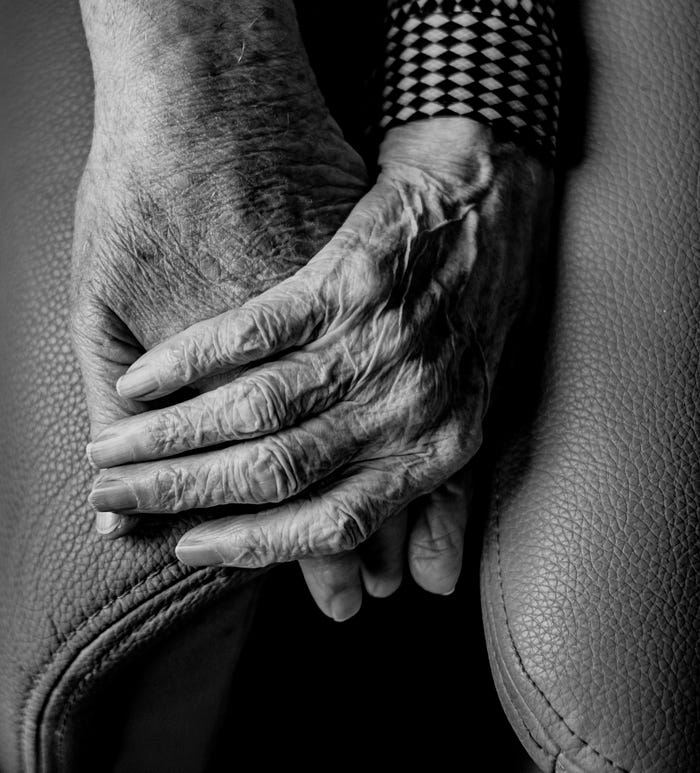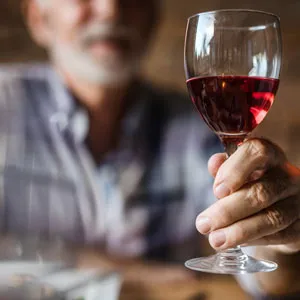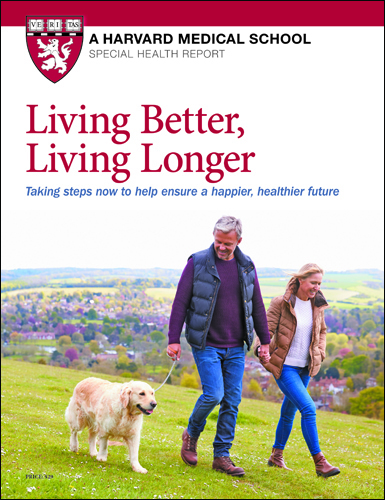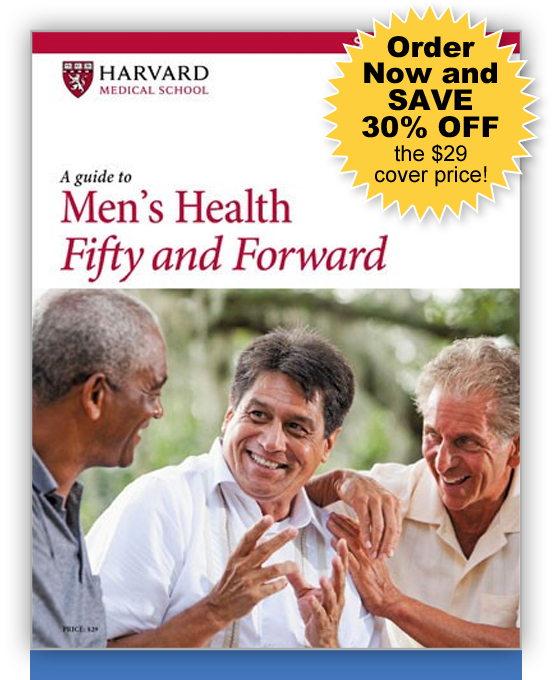“There is a person, an 80-year old version of yourself, that is rooting hard for you to make good decisions today.”
Most young people don’t appreciate the true advantages of being young.
And most people, as they age, realize that with aging comes new problems and difficulties
.
Certainly, there are advantages to being young.
But there are also advantages that can come with age.
Some of the most successful, impactful, and powerful people are older than the rest of us.
Not everyone loves the aging process, but there are a few things that we can only learn as we get older and experience some of life’s challenges.
1. Relationships are Invaluable
“You can never replace someone who cares.”
One of the most poignant rules of life is that we often don’t understand the value of something until we lose it.
I remember being cast in the play, You Can’t Take It With You — a play about how people are more important than the “things” which don’t benefit us beyond the end of our lives.
It was a fantastic experience.
But it was also tragic.
One of the cast members — my friend Chris — was killed in a car accident on the way to rehearsal one day.
I even wrote an article about how Chris’s death has had an impact on my life.
It is difficult to value our relationships until those relationships end.
I remember so clearly one relationship that meant so much to me.
I had just moved from being an independent contractor to an employee for a startup.
I was driving over an hour to work each day. I was deemed part of the IT department, even though I mainly did marketing.
I sat next to a man named Dave for the first few years that I worked at this company.
Dave and I connected quickly and became good friends.
Dave was a smart and talented man.
We had a special friendship, as our desks were next to each other for a few years.
We had great conversations and became good friends.
He had even been drafted by a professional baseball team but an injury derailed his ability to pitch professionally.
Dave had made my job much more enjoyable.
I actually looked forward to work! People make all of the difference.
But Dave’s story does not end here, as I will share more about him soon.
Multiple times I have had the unenviable task of laying people off. It is one of the most difficult aspects of managing people.
But it taught me one of the most important lessons about people that I have ever learned: you may be able to form new relationships, but you can never replace someone who cares deeply about an organization, a role, or you.
You can never replace someone who cares.
If we want to purchase something, one of the first things we want to know is the price.
Often, the amount of money we need to buy something is how we gauge the value of that thing. If something costs a lot, it is valuable.
If something costs a little, then it is cheap or low in value.
Creating amazing relationships also has a cost.
But the cost rarely involves money. In fact, I learned something amazing about the cost of relationships in comparison to the cost of anything else:
Anything you can buy with money is worthless.
The true worth of our lives is not calculated with the amount of money or assets that we have acquired. Our true worth is tied to the number of people that we have served and the relationships that we have created.
I wish that I learned this lesson earlier in my life. We need money to live, obviously. But anything we can buy with money is worthless.
Over time, one of the best lessons we can learn is this: relationships are invaluable. Don’t wait until you are older to figure this out. Learn it now.
2. There Are No Ordinary Moments
“Right now counts forever.”
Author and speaker Dan Millman had it right when he wrote, “There are no ordinary moments.”
“No ordinary moments” means that every second count.
It means that we are grateful for every minute that we get to be alive.
It means that there is no such thing as a moment that is worth less than the rest.
When I watch sports, I think about what it feels like to be in a late-game situation, where the last-minute goal or score creates victory or causes defeat.
But when I compare the sporting event to my own life, there is no buzzer-beating shot.
There is no second-half rally.
Every second tick by in the same consistent fashion.
The film director Alfred Hitchcock once said that film is life with all of the boring parts taken out.
But if we start with the premise that there are no ordinary moments, then even the parts that we think are boring can become important.
Every interaction can impact the people around us. In fact, some interactions can impact people far longer than we expect.
For example, I remember one interaction that occurred over 25 years ago more clearly than nearly any other.
In fact, that one brief conversation has impacted every day of my life since that day, and will likely impact every day until I die.
Since that day, I have said “Good morning” as a greeting to nearly every person that I have come across.
That is not entirely unusual or unique, except that I say “Good morning” or just “Morning!” at all times of the day.
Why do I always say “Good morning” as a greeting?
It is because of one interaction.
During high school, I was having a stressful day.
I do not remember what caused the stress.
I arrived at my locker feeling the stress, and the girl with the locker next just looked at me and said “Good morning” in the happiest, bubbly tone.
I am not sure what happened, but the greeting completely changed my mood.
Instead of feeling the physical stress, I suddenly had a smile on my face.
If anyone that could say good morning with that much energy and joy, then I could certainly feel better.
Two words changed my mood.
Right then, I decided to try greeting people with a similar tone.
I started to say “Good morning” at all times of the day.
It morphed into just “Morning!” at times.
And I still say it to this day.
There are no ordinary moments.
Even a few words can have an incredible impact.
Imagine what we could do with more.
Why do we only learn this as we get older?
As we age, we realize that there is an end.
Thinking that there are no ordinary moments comes from recognizing that our time alive is limited. There is an end.
We may not know when or how our lives end.
But we do know that they will.
And if there is an end, then we are limited in what we can do.
There is a deadline, with no extensions.
We can’t collectively cram and get everything done the night before the due date, either.
There are no ordinary moments.
And right now can count forever.
3. Some Holes Cannot Be Filled
Asking for forgiveness is admirable, but it also does not heal all wounds.
Forgiveness provides a path for us to move forward in peace.
But forgiveness does not always make things how they were.
And sometimes, you can never go back to how things were.
I once heard a story that illustrates this lesson.
A young boy struggled with his temper.
The boy’s father decided to teach his son about anger and how to handle it without losing control. Every time the boy felt ready to explode with anger, the father told the boy to pound a nail into a wooden fence in their backyard.
The fence had dozens of nails in a few days.
But as time passed, fewer nails were added to the fence.
Eventually, the boy learned to control his temper and went a single day without any nails added to the fence.
The boy’s father then told the boy that he could remove a nail for each day that he did not get angry. Over time, the boy removed all of the nails in the fence.
He was so excited and proud.
The boy had learned a great lesson — how to control his temper.
The father then told the boy the lesson: “Look at this fence. You have resolved your anger, but all of the holes remain. Even though you are healed, the fence will never be the same. When you get angry or make a mistake, people may forgive you. But you will still leave holes. You may never be able to make things how they were.”
I have countless stories to share about this lesson.
But I will share just one.
Years ago, my co-worker and friend Dave who I mentioned above, was struck by nerve disease.
Over time, the nerve disease crippled my friend.
This was a man who had previously been drafted by a professional baseball team.
He threw so hard that I could barely catch a football that he threw right at me.
And this disease made it so he could not even lift up a fork or spoon.
He was bedridden.
Dave’s wife cared for him, and she sent an email asking his friends to visit him, as he would cherish those moments.
I remember so clearly thinking that I should go visit him and say hello.
But I kept putting it off.
I was busy.
I had so much to do.
I was building a career.
I was trying to start a family.
And then one day, I told myself that excuses are useless.
If he was my friend, I had to make time to see him.
That’s what friends do, right?
I emailed Dave’s wife to schedule a time to see my old friend.
I was so excited that I was finally taking the time to spend some time with Dave.
And here is when I learned one of the most painful lessons of my life.
Not long after I sent my email, I saw a note posted on Dave’s wife’s blog.
Dave had died recently.
He fought hard but was gone.
I waited too long.
Even though I eventually overcame my excuses, “eventually” was not enough.
Some holes cannot be filled.
Some lessons you can only learn by living through them.
If You Learn These Lessons, Your Age Is Valuable
“There is a person, a 80-year old version of yourself, that is rooting hard for you to make good decisions today.”
Some things you can only learn as you get older.
If I could communicate backward, I would love to give myself advice.
I would love to point out mistakes.
And I would love to make slight course corrections to move towards certain milestones faster.
But in the end, I can’t do any of those things.
I can’t change anything behind me, for better or worse.
But I can write about what I have learned.
And I can share some of the memories — and the pain.
Some things you can only learn as you get older.
But reading about them might help you learn them a little younger than when I did.
If you enjoyed this article, learn more about me (and stay in touch) at JohnMashni.com.
--------------------------------------------------------------------------------------------------------------


 image by Gert Stockmans from Unsplash.com
image by Gert Stockmans from Unsplash.com








































































 Slideshow: Your Hands as You Age
Slideshow: Your Hands as You Age Slideshow: Sudden Health Problems After 50
Slideshow: Sudden Health Problems After 50 Slideshow: Over 50? These Problems Can Sneak Up on You
Slideshow: Over 50? These Problems Can Sneak Up on You Slideshow: 8 Ways to Outsmart Father Time
Slideshow: 8 Ways to Outsmart Father Time 14 Things No One Tells You About Aging
14 Things No One Tells You About Aging Slideshow: 10 Tips to Help You Sail Through Physical Therapy
Slideshow: 10 Tips to Help You Sail Through Physical Therapy Slideshow: Everyday Tips for Caregivers
Slideshow: Everyday Tips for Caregivers Slideshow: Live Well Over 50
Slideshow: Live Well Over 50 Slideshow: Get the Protein You Need
Slideshow: Get the Protein You Need Slideshow: 14 Ways to Avoid Caregiver Burnout
Slideshow: 14 Ways to Avoid Caregiver Burnout Slideshow: Sneaky Depression Triggers as You Age
Slideshow: Sneaky Depression Triggers as You Age Slideshow: 18 Secrets for a Longer Life
Slideshow: 18 Secrets for a Longer Life Slideshow: Most Expensive Medical Conditions
Slideshow: Most Expensive Medical Conditions Slideshow: Foods for a Long, Healthy Life
Slideshow: Foods for a Long, Healthy Life Slideshow: Cooking for One
Slideshow: Cooking for One Slideshow: Avoiding Problem Foods as You Age
Slideshow: Avoiding Problem Foods as You Age Slideshow: Top Causes of Severe Hearing Loss
Slideshow: Top Causes of Severe Hearing Loss Slideshow: How to Protect Your Health Care in a Recession
Slideshow: How to Protect Your Health Care in a Recession Slideshow: How to Prepare for Surgery
Slideshow: How to Prepare for Surgery









